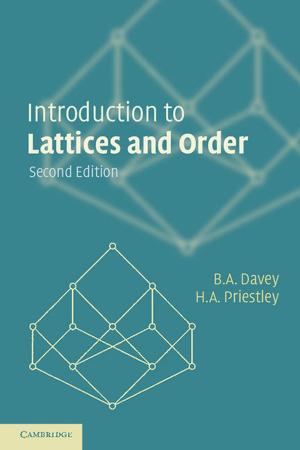Descartes' Deontological Turn
Reason, Will, and Virtue in the Later Writings
Nonfiction, Religion & Spirituality, Philosophy, Modern, History, Criticism, & Surveys| Author: | Noa Naaman-Zauderer | ISBN: | 9780511861482 |
| Publisher: | Cambridge University Press | Publication: | November 4, 2010 |
| Imprint: | Cambridge University Press | Language: | English |
| Author: | Noa Naaman-Zauderer |
| ISBN: | 9780511861482 |
| Publisher: | Cambridge University Press |
| Publication: | November 4, 2010 |
| Imprint: | Cambridge University Press |
| Language: | English |
This book offers a way of approaching the place of the will in Descartes' mature epistemology and ethics. Departing from the widely accepted view, Noa Naaman-Zauderer suggests that Descartes regards the will, rather than the intellect, as the most significant mark of human rationality, both intellectual and practical. Through a close reading of Cartesian texts from the Meditations onward, she brings to light a deontological and non-consequentialist dimension of Descartes' later thinking, which credits the proper use of free will with a constitutive, evaluative role. She shows that the right use of free will, to which Descartes assigns obligatory force, constitutes for him an end in its own right rather than merely a means for attaining any other end, however valuable. Her important study has significant implications for the unity of Descartes' thinking, and for the issue of responsibility, inviting scholars to reassess Descartes' philosophical legacy.
This book offers a way of approaching the place of the will in Descartes' mature epistemology and ethics. Departing from the widely accepted view, Noa Naaman-Zauderer suggests that Descartes regards the will, rather than the intellect, as the most significant mark of human rationality, both intellectual and practical. Through a close reading of Cartesian texts from the Meditations onward, she brings to light a deontological and non-consequentialist dimension of Descartes' later thinking, which credits the proper use of free will with a constitutive, evaluative role. She shows that the right use of free will, to which Descartes assigns obligatory force, constitutes for him an end in its own right rather than merely a means for attaining any other end, however valuable. Her important study has significant implications for the unity of Descartes' thinking, and for the issue of responsibility, inviting scholars to reassess Descartes' philosophical legacy.















